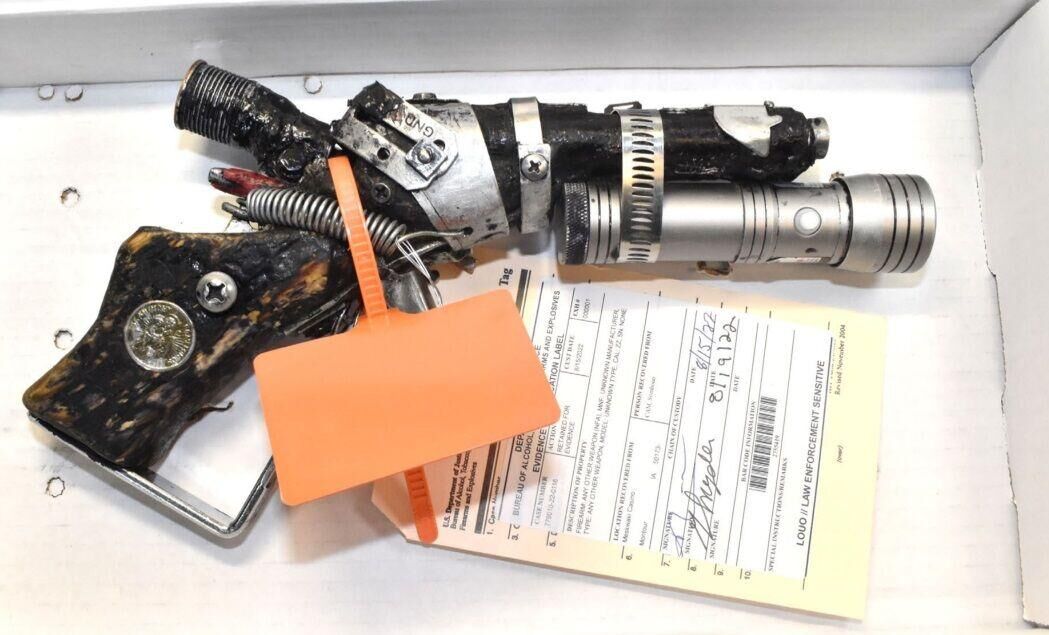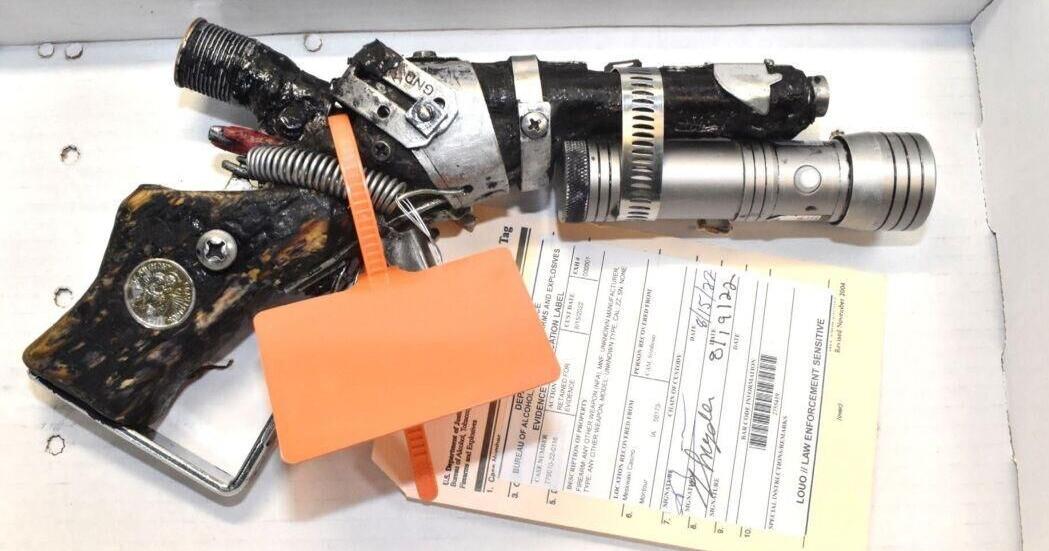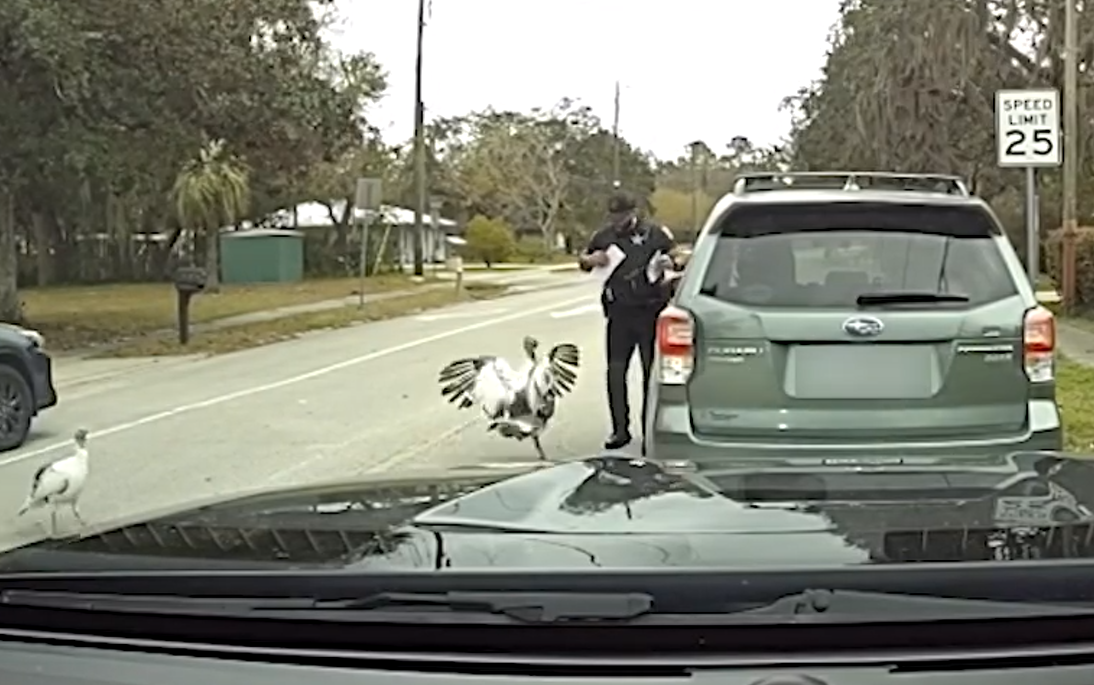Colleges
- American Athletic
- Atlantic Coast
- Big 12
- Big East
- Big Ten
- Colonial
- Conference USA
- Independents (FBS)
- Junior College
- Mountain West
- Northeast
- Pac-12
- Patriot League
- Pioneer League
- Southeastern
- Sun Belt
- Army
- Charlotte
- East Carolina
- Florida Atlantic
- Memphis
- Navy
- North Texas
- Rice
- South Florida
- Temple
- Tulane
- Tulsa
- UAB
- UTSA
- Boston College
- California
- Clemson
- Duke
- Florida State
- Georgia Tech
- Louisville
- Miami (FL)
- North Carolina
- North Carolina State
- Pittsburgh
- Southern Methodist
- Stanford
- Syracuse
- Virginia
- Virginia Tech
- Wake Forest
- Arizona
- Arizona State
- Baylor
- Brigham Young
- Cincinnati
- Colorado
- Houston
- Iowa State
- Kansas
- Kansas State
- Oklahoma State
- TCU
- Texas Tech
- UCF
- Utah
- West Virginia
- Illinois
- Indiana
- Iowa
- Maryland
- Michigan
- Michigan State
- Minnesota
- Nebraska
- Northwestern
- Ohio State
- Oregon
- Penn State
- Purdue
- Rutgers
- UCLA
- USC
- Washington
- Wisconsin
High Schools
- Illinois HS Sports
- Indiana HS Sports
- Iowa HS Sports
- Kansas HS Sports
- Michigan HS Sports
- Minnesota HS Sports
- Missouri HS Sports
- Nebraska HS Sports
- Oklahoma HS Sports
- Texas HS Hoops
- Texas HS Sports
- Wisconsin HS Sports
- Cincinnati HS Sports
- Delaware
- Maryland HS Sports
- New Jersey HS Hoops
- New Jersey HS Sports
- NYC HS Hoops
- Ohio HS Sports
- Pennsylvania HS Sports
- Virginia HS Sports
- West Virginia HS Sports
ADVERTISEMENT
You are using an out of date browser. It may not display this or other websites correctly.
You should upgrade or use an alternative browser.
You should upgrade or use an alternative browser.
Filters
Show only:
Trump going to need a lot more than 540 million video to follow
He’s owes about 780 million in the next 5 years.
Login to view embedded media
Jake vs Mike
- By biggreydogs
- Off Topic
- 12 Replies
How many countries in America?
- By biggreydogs
- Off Topic
- 27 Replies
Council Bluffs man sentenced for homemade gun found during casino scuffle
- By cigaretteman
- Off Topic
- 13 Replies

A Council Bluffs man has been sentenced to prison in connection with a homemade gun found after he caused a disturbance at a Tama casino in April 2022.
Som Boun Cam, 56, was sentenced to five years in prison to be followed by three years of supervised release during a hearing Thursday in U.S. District Court for the Northern District of Iowa in Cedar Rapids.
Authorities said Cam had jiggled hotel door handles and kicked doors at the Meskwaki Casino — conduct prosecutors said amounted to attempting to break into rooms and the defense attributed to the erratic behavior that comes with drug use and mental health episodes.
Cam then “shadow boxed” with a fire extinguisher and paced the hall before becoming involved in a scuffle with another hotel guest.
Medics took him to the hospital for medical treatment and he left behind his backpack, which was later turned into the lost and found.
Inside the backpack, hotel workers found a glass pipe and a loaded homemade double-barreled gun capable of firing .410-bore shells.
Cam returned for the backpack days later, and police found three bags of meth in his coat pocket. He admitted to police he built the weapon himself, according to court records.
ATF workers tested the weapon and it worked as intended, court records state. The gun was categorized as an “any other weapon” which would have required registration through the National Firearms Registration and Transfer Record.
Cam is prohibited from handling firearms because of prior felony drug and weapons convictions, according to prosecutors.

Council Bluffs man sentenced for homemade gun found during casino scuffle
A Council Bluffs man has been sentenced to prison in connection with a homemade gun found after he caused a disturbance at a Tama casino in 2022.
Appeals Court Upholds TX Porn Age Verification Law
I agree with this... even if kids will find a way around it like alcohol... even Pepsi
Login to view embedded media
Login to view embedded media
Caitlin Clark mural in Indy
- Iowa Men's Basketball
- 3 Replies
New mural highlights potential Indiana Fever No. 1 pick Caitlin Clark. See it for yourself
Kwazar Martin, an Indianapolis-based street artist known for his colorful graffiti art, has added to his collection of larger-than-life murals.
www.indystar.com
All the teams that have made a Sweet 16 since Iowa was last there....
- By uiowa08
- Iowa Men's Basketball
- 59 Replies
9 of the 14 big ten teams made the list. Iowa is in good company with Nebraska, Rutgers, Minnesota, and Northwestern by not making the list.
List current through March 2023:
List current through March 2023:
| Alabama Arkansas |
| Arizona |
| Auburn |
| Baylor |
| Boston College |
| Bradley |
| Butler |
| BYU |
| Cincinnati |
| Clemson |
| Connecticut |
| Cornell Creighton |
| Davidson |
| Dayton |
| Duke |
| Florida Florida Atlantic |
| Florida Gulf Coast |
| Florida St |
| George Mason |
| Georgetown |
| Georgia Tech |
| Gonzaga |
| Houston |
| Illinois |
| Indiana |
| Iowa State |
| Kansas |
| Kansas St |
| Kent State |
| Kentucky |
| La Salle |
| Louisville |
| Loyola-Chicago |
| LSU |
| Marquette |
| Maryland |
| Memphis |
| Miami-FL |
| Michigan |
| Michigan State |
| Missouri |
| NC State |
| Nevada |
| North Carolina |
| Northern Iowa |
| Notre Dame |
| Ohio |
| Ohio St |
| Oklahoma |
| Oklahoma St |
| Ole Miss Oral Roberts |
| Oregon Oregon St |
| Penn State |
| Pittsburgh Princeton Providence |
| Purdue |
| Richmond |
| Saint Joseph's |
| Saint Mary's Saint Peter's |
| San Diego St |
| Seton Hall |
| South Carolina |
| Southern Illinois |
| Stanford |
| Syracuse |
| Temple |
| Tennessee |
| Texas |
| Texas A&M |
| Texas Tech |
| Tulsa |
| UAB |
| UCLA |
| UNLV |
| USC |
| Utah |
| UW-Milwaukee |
| Vanderbilt |
| VCU |
| Villanova |
| Virginia |
| Virginia Tech |
| Wake Forest |
| Washington |
| Washington St |
| West Virginia |
| Western Kentucky |
| Wichita St |
| Wisconsin |
| Xavier |
Brody Brecht #9 ranked player in the MLB 24 draft class
- By jerbob36
- Iowa Football
- 9 Replies
Keith Law is who created the Top 30 list. I was hoping to see BB in the teens, but top 10 is pretty special.
Mentioned him being pretty raw with a higher ceiling than many. 100+mph with room to still refine.
Athletic Top 30 MLB 24 Draft
Mentioned him being pretty raw with a higher ceiling than many. 100+mph with room to still refine.
Athletic Top 30 MLB 24 Draft
Neil Young tells Spotify to choose between him and Joe Rogan.
- By FAUlty Gator
- Off Topic
- 525 Replies

Neil Young Demands Spotify Remove His Music Over 'False Information About Vaccines'
"They can have [Joe] Rogan or Young," Neil Young wrote in a letter asking Spotify to remove all of his music from the service. "Not both."
Neil Young posted a since-deleted letter to his management team and record labeldemanding that they remove his music from Spotify. “I am doing this because Spotify is spreading fake information about vaccines – potentially causing death to those who believe the disinformation being spread by them,” he wrote. “Please act on this immediately today and keep me informed of the time schedule.”
“I want you to let Spotify know immediately TODAY that I want all my music off their platform,” he continued. “They can have [Joe] Rogan or Young. Not both.” Young is referencing the steady stream of misinformation about vaccines that Joe Rogan has peddled on The Joe Rogan Experience. Last month, 270 doctors, physicians, and science educators signed an open letter asking Spotify to stop spreading Rogan’s baseless claims.
Jon Gruden going all the way to Italy to make a wad of money with...
- By NDallasRuss
- Off Topic
- 7 Replies
"Two-time NFL head coach Jon Gruden will need to learn that phrase and others, as he heads to Italy to continue his coaching career. Via Ben Axelrod of AwfulAnnouncing.com, the former Monday Night Football lead analyst will serve as an advisor to the Milano Seamen of the European League of Football."
Those emails really did crush his job prospects. Maybe this will give him a load of new prospects domestically.

Jon Gruden head to Italy, where he'll advise the Milano Seamen
Toccando ferro if you're with me.
Mods: Change the title of this forum to Iowa Women’s Basketball. Men’s bball can just be discussed sparingly in the Off Topic forum.
- By curtisj157
- Iowa Men's Basketball
- 38 Replies
Men’s basketball doesn’t deserve its own forum.
Montana rancher illegally created giant hybrid sheep to sell for thousands
- By cigaretteman
- Off Topic
- 11 Replies
A Montana rancher created giant hybrid sheep and sold them for hunting, creating the lambs by using illegally imported genetic material from the world’s largest sheep species, federal prosecutors say.
The moneymaking scheme sought to create a hybrid species of sheep that could be sold at a high price to hunting preserves in the United States and would mimic the world’s biggest breed, the Marco Polo argali sheep, a threatened species that lives in central Asia and is prized by trophy hunters.
Arthur “Jack” Schubarth, 80, created more than 150 cloned embryos of the species and successfully bred a male Marco Polo argali, selling one of its offspring for $10,000, according to the criminal complaint filed against him by federal prosecutors. He used the sheep’s semen to breed it with other species, creating hybrid sheep and selling them to people in Texas and Minnesota.
Schubarth pleaded guilty to the two felony wildlife counts against him this week in federal court. He faces up to 10 years in prison and fines of up to $500,000.
Schubarth sold and bred mountain sheep, mountain goats and similar breeds at his 215-acre ranch in Vaughn, Mont. He began his effort to clone the Marco Polo argali in 2013, working with at least five other people — all unnamed in court documents — over the course of eight years, prosecutors said. No one else has been charged in connection with the case, the Justice Department said Thursday.
“This was an audacious scheme to create massive hybrid sheep species to be sold and hunted as trophies,” Assistant Attorney General Todd Kim of the Justice Department’s Environment and Natural Resources Division said in a statement.
Schubarth’s attorney, Jason Holden, did not immediately respond to a request for comment from The Washington Post.
Marco Polo argali sheep have distinctive spiraling horns and can weigh more than 300 pounds — about double the size of a Rocky Mountain bighorn sheep. They are big prizes for trophy hunters, who travel to Kyrgyzstan, Tajikistan and Mongolia to hunt them.
The breed is protected by an international convention and under the U.S. Endangered Species Act, which lists the species as threatened. They are on Montana’s list of prohibited exotic wildlife.
Sheep with larger horns and bodies are worth more to hunters, including at private shooting preserves, where hunters pay to pursue captive game. That means they can be sold to such facilities at higher prices.
To carry out his scheme, Schubarth obtained tissue from a Marco Polo argali that had been hunted in Kyrgyzstan from someone who smuggled it into the United States, according to the complaint. He then took the sheep tissue to a lab, which used it to create 165 cloned embryos.
Schubarth had embryos implanted in some of his ewes. One gave birth to a male Marco Polo argali, which Schubarth named Montana Mountain King.
He then used Montana Mountain King’s sperm to impregnate other species of ewe, bringing species that are prohibited in Montana across state lines to do so. That included buying and selling parts of Rocky Mountain bighorn sheep in violation of state laws, according to prosecutors. He also sold Montana Mountain King’s semen.
The scheme broke state and federal laws relating to animal import and export, game animals and animal protection. By introducing new genetic material into sheep, it also potentially threatened the health of native sheep populations, prosecutors and state wildlife officials said.
“The kind of crime we uncovered here could threaten the integrity of our wildlife species in Montana,” said Ron Howell, chief of enforcement for Montana Fish, Wildlife & Parks.
In court documents, prosecutors described an elaborate effort among Schubarth and others to breed and transport the sheep. Someone he worked with falsely declared Montana Mountain King’s offspring as a different species to obtain state veterinary certificates that would permit them to move the sheep across state lines, the complaint alleges. Another accomplice was the person who allegedly brought the hunted Marco Polo argali tissue to the United States.
Schubarth sold dozens of straws of Montana Mountain King’s semen to people in Texas and Minnesota, and they illegally moved ewes from both states to Schubarth’s ranch to be artificially inseminated, the complaint alleges. They then transported Montana Mountain King’s offspring to Texas and Minnesota.
In addition to the $10,000 sheep, Schubarth sold 11 sheep with one-quarter of Montana Mountain King’s genetics for $13,200 total to two people in Texas, prosecutors said.
Schubarth is set to be sentenced July 11 in Montana.
The moneymaking scheme sought to create a hybrid species of sheep that could be sold at a high price to hunting preserves in the United States and would mimic the world’s biggest breed, the Marco Polo argali sheep, a threatened species that lives in central Asia and is prized by trophy hunters.
Arthur “Jack” Schubarth, 80, created more than 150 cloned embryos of the species and successfully bred a male Marco Polo argali, selling one of its offspring for $10,000, according to the criminal complaint filed against him by federal prosecutors. He used the sheep’s semen to breed it with other species, creating hybrid sheep and selling them to people in Texas and Minnesota.
Schubarth pleaded guilty to the two felony wildlife counts against him this week in federal court. He faces up to 10 years in prison and fines of up to $500,000.
Schubarth sold and bred mountain sheep, mountain goats and similar breeds at his 215-acre ranch in Vaughn, Mont. He began his effort to clone the Marco Polo argali in 2013, working with at least five other people — all unnamed in court documents — over the course of eight years, prosecutors said. No one else has been charged in connection with the case, the Justice Department said Thursday.
“This was an audacious scheme to create massive hybrid sheep species to be sold and hunted as trophies,” Assistant Attorney General Todd Kim of the Justice Department’s Environment and Natural Resources Division said in a statement.
Schubarth’s attorney, Jason Holden, did not immediately respond to a request for comment from The Washington Post.
Marco Polo argali sheep have distinctive spiraling horns and can weigh more than 300 pounds — about double the size of a Rocky Mountain bighorn sheep. They are big prizes for trophy hunters, who travel to Kyrgyzstan, Tajikistan and Mongolia to hunt them.
The breed is protected by an international convention and under the U.S. Endangered Species Act, which lists the species as threatened. They are on Montana’s list of prohibited exotic wildlife.
Sheep with larger horns and bodies are worth more to hunters, including at private shooting preserves, where hunters pay to pursue captive game. That means they can be sold to such facilities at higher prices.
To carry out his scheme, Schubarth obtained tissue from a Marco Polo argali that had been hunted in Kyrgyzstan from someone who smuggled it into the United States, according to the complaint. He then took the sheep tissue to a lab, which used it to create 165 cloned embryos.
Schubarth had embryos implanted in some of his ewes. One gave birth to a male Marco Polo argali, which Schubarth named Montana Mountain King.
He then used Montana Mountain King’s sperm to impregnate other species of ewe, bringing species that are prohibited in Montana across state lines to do so. That included buying and selling parts of Rocky Mountain bighorn sheep in violation of state laws, according to prosecutors. He also sold Montana Mountain King’s semen.
The scheme broke state and federal laws relating to animal import and export, game animals and animal protection. By introducing new genetic material into sheep, it also potentially threatened the health of native sheep populations, prosecutors and state wildlife officials said.
“The kind of crime we uncovered here could threaten the integrity of our wildlife species in Montana,” said Ron Howell, chief of enforcement for Montana Fish, Wildlife & Parks.
In court documents, prosecutors described an elaborate effort among Schubarth and others to breed and transport the sheep. Someone he worked with falsely declared Montana Mountain King’s offspring as a different species to obtain state veterinary certificates that would permit them to move the sheep across state lines, the complaint alleges. Another accomplice was the person who allegedly brought the hunted Marco Polo argali tissue to the United States.
Schubarth sold dozens of straws of Montana Mountain King’s semen to people in Texas and Minnesota, and they illegally moved ewes from both states to Schubarth’s ranch to be artificially inseminated, the complaint alleges. They then transported Montana Mountain King’s offspring to Texas and Minnesota.
In addition to the $10,000 sheep, Schubarth sold 11 sheep with one-quarter of Montana Mountain King’s genetics for $13,200 total to two people in Texas, prosecutors said.
Schubarth is set to be sentenced July 11 in Montana.
If UNI Women were to win MVC…
- By cmhawks99
- Iowa Men's Basketball
- 3 Replies
Drake would still get an invite, right? That would be cool.
They started out 1-9 & are 14-5 since. Apparently had at least 2, if not 3 starters in and out of the lineup early on.
They started out 1-9 & are 14-5 since. Apparently had at least 2, if not 3 starters in and out of the lineup early on.
Thomas Jefferson
- By FAUlty Gator
- Off Topic
- 15 Replies
Halfway through the Meecham bio on him. Awesome. TJ knew how to Jedi-mind trick both the populace and fellow statesmen better than anyone we ever had.
In about 1774, he knew that the main grievances being held against the King were by the wealthy, land owners and the educated Whig thinkers. But he also knew he needed all classes on deck to get behind the idea of independence. So, while in Williamsburg he called for a “Day of prayer and fasting” of all Virginians to pray that “both sides” come to their senses and avoid a civil war. Then he spells out all of the grievances perfectly, acting like a neutral character but used the language sure to piss everyone off about what was happening while not being accused of treason (yet).
It really got all of Virginia on board and behind the idea of a revolution while calling for “a prayer for peace”. Genius.
csb
In about 1774, he knew that the main grievances being held against the King were by the wealthy, land owners and the educated Whig thinkers. But he also knew he needed all classes on deck to get behind the idea of independence. So, while in Williamsburg he called for a “Day of prayer and fasting” of all Virginians to pray that “both sides” come to their senses and avoid a civil war. Then he spells out all of the grievances perfectly, acting like a neutral character but used the language sure to piss everyone off about what was happening while not being accused of treason (yet).
It really got all of Virginia on board and behind the idea of a revolution while calling for “a prayer for peace”. Genius.
csb
Remember when?
- By Sharky1203
- Off Topic
- 25 Replies
A few weeks past, people were in prison, and we had a nice forum and didn't have to listen to all the left's and right's dribble on here? Man was that a pleasant time.
Val Solorio interview on FloWrestling
- By Todd Conner
- Iowa Wrestling
- 1 Replies

Val Solorio interview on FloWrestling
Incoming Iowa Wrestling recruit Val Solorio was interviewed by Kyle Klingman of FloWrestling. Last weekend Solorio was 4-0 with four pins to win a state title at 100 lbs. in the first ever PIAA Girls Wrestling Championships in Pennsylvania history. Solorio recorded a fall in 1:23, :37 and 1:06...
 iowawrestlingblog.com
iowawrestlingblog.com
It is great to be an Iowa Wrestling fan.
Go Hawks!
Rep. Matt Gaetz subpoenaed in defamation suit by woman he allegedly had sex with as minor

Gaetz subpoenaed by woman he allegedly had sex with when she was a minor in defamation suit brought by friend
Rep. Matt Gaetz has been served a subpoena to sit for a deposition in a civil lawsuit that involves allegations he had sex with a 17-year old-girl, sources tell ABC News.
Making Steaks for dinner
- By Jimmy McGill
- Off Topic
- 20 Replies
What is the proper temperature in the microwave?
Ex-treasury secretary Mnuchin eyes TikTok, seeks investors to fund bid
- By cigaretteman
- Off Topic
- 5 Replies
Former treasury secretary Steven Mnuchin is putting together a group of investors to buy TikTok, he said Thursday.
Mnuchin made the comments during a TV interview as the Senate prepared to consider a bill that would force TikTok’s Beijing-based parent ByteDance to divest the popular social media app. Under the bill passed by the House on Wednesday, TikTok would have 180 days to find a buyer or face a ban in the United States.
Get a curated selection of 10 of our best stories in your inbox every weekend.
“I think the legislation should pass — I think it should be sold,” Mnuchin told CNBC. “I understand the technology, it’s a great business, and I’m going to put together a group to buy TikTok.
The bill’s proponents say they want to wrest TikTok from foreign control, expressing concerns that the Chinese government could use the app to spy on Americans or influence elections. TikTok, which says its U.S. operations use cloud servers in the United States, has criticized the bill and lobbied against it, saying the real objective is to ban the app outright.
Mnuchin was part of a 2020 effort to force a TikTok sale or ban when he led the Treasury Department under President Donald Trump. Mnuchin said a Treasury panel that oversees foreign investments recommended a sale, although Trump ultimately signed an executive order barring U.S. entities from doing business with TikTok and another Chinese-owned app, WeChat, which would have effectively banned them from app stores on phones in the United States. Federal courts blocked the order, however.
Since leaving government, Mnuchin has founded Liberty Strategic Capital, a D.C.-based private equity firm focused on technology companies. Mnuchin declined to say Thursday who might be part of his investment group, but he stressed that no single investor would have a controlling interest.
Several other investors have expressed interest in buying TikTok, although it’s unclear how advanced those efforts are. Canadian investor Kevin O’Leary, a regular on the Shark Tank TV show, has said he wants to buy the app. He has called it a “complicated transaction,” however, because Congress has not clarified whether it would have to be a full or partial divestment.
Former Activision chief executive Bobby Kotik has also floated the idea to potential investment partners, according to the Wall Street Journal.
Mnuchin made the comments during a TV interview as the Senate prepared to consider a bill that would force TikTok’s Beijing-based parent ByteDance to divest the popular social media app. Under the bill passed by the House on Wednesday, TikTok would have 180 days to find a buyer or face a ban in the United States.
Get a curated selection of 10 of our best stories in your inbox every weekend.
“I think the legislation should pass — I think it should be sold,” Mnuchin told CNBC. “I understand the technology, it’s a great business, and I’m going to put together a group to buy TikTok.
The bill’s proponents say they want to wrest TikTok from foreign control, expressing concerns that the Chinese government could use the app to spy on Americans or influence elections. TikTok, which says its U.S. operations use cloud servers in the United States, has criticized the bill and lobbied against it, saying the real objective is to ban the app outright.
Mnuchin was part of a 2020 effort to force a TikTok sale or ban when he led the Treasury Department under President Donald Trump. Mnuchin said a Treasury panel that oversees foreign investments recommended a sale, although Trump ultimately signed an executive order barring U.S. entities from doing business with TikTok and another Chinese-owned app, WeChat, which would have effectively banned them from app stores on phones in the United States. Federal courts blocked the order, however.
Since leaving government, Mnuchin has founded Liberty Strategic Capital, a D.C.-based private equity firm focused on technology companies. Mnuchin declined to say Thursday who might be part of his investment group, but he stressed that no single investor would have a controlling interest.
Several other investors have expressed interest in buying TikTok, although it’s unclear how advanced those efforts are. Canadian investor Kevin O’Leary, a regular on the Shark Tank TV show, has said he wants to buy the app. He has called it a “complicated transaction,” however, because Congress has not clarified whether it would have to be a full or partial divestment.
Former Activision chief executive Bobby Kotik has also floated the idea to potential investment partners, according to the Wall Street Journal.
Florida cop attacked by a "chicken"
while on a traffic stop. Well, that's what he called it when talking to a dispatcher, although it is clearly a turkey, and for some reason he kept quacking at it like it was a duck. There's video with the linked story, it's well worth the couple of minutes it lasts. Turducken lives matter?

 www.wfla.com
www.wfla.com

‘Somebody better come get their chicken’: Florida deputy fends off aggressive turkey during traffic stop
A Florida deputy had a close encounter of the bird kind during a traffic stop.
Load more
ADVERTISEMENT
Filter
ADVERTISEMENT